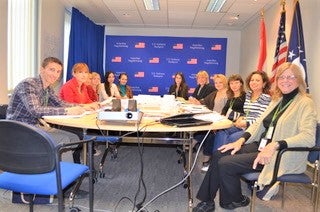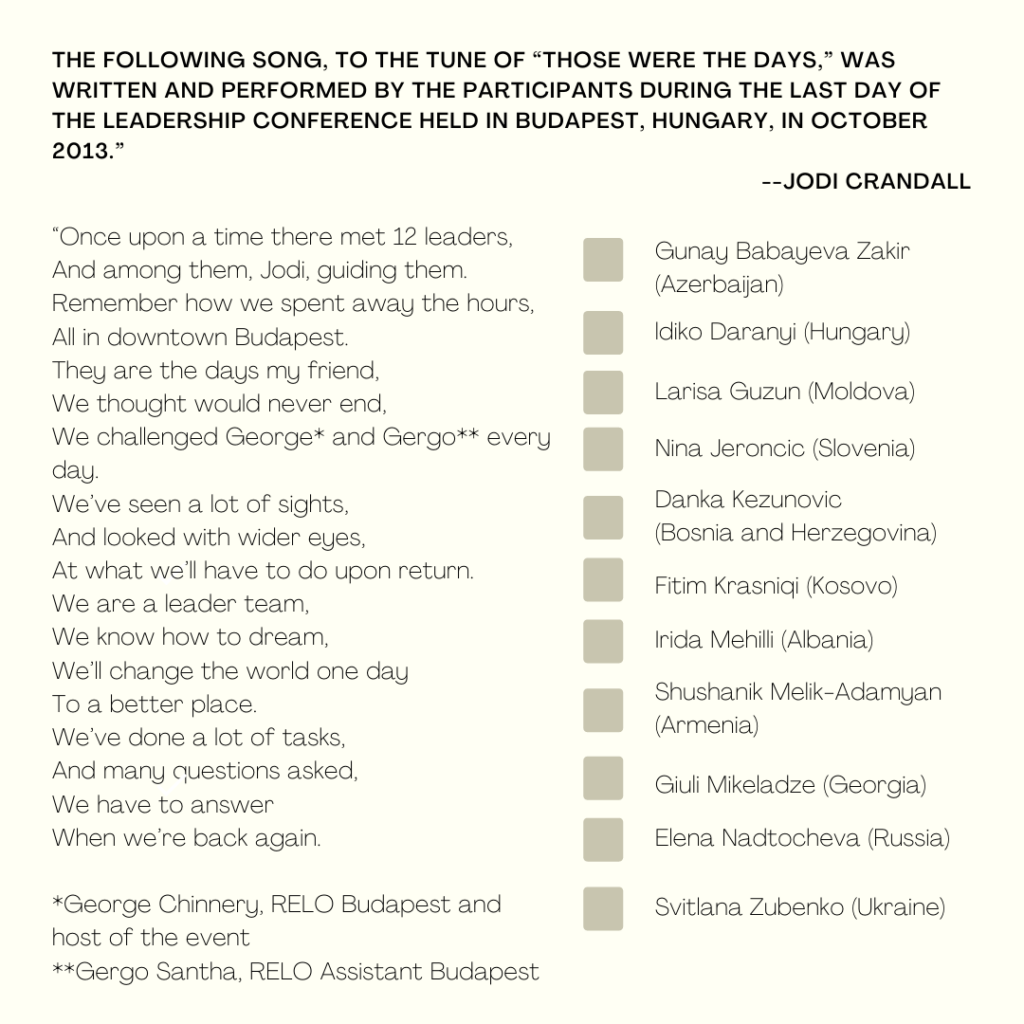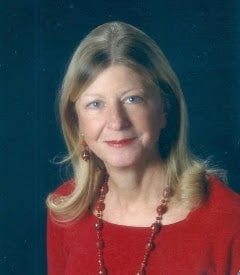“These young people had been through a real change, and they were still developing their own sense of what a leader is.”
It’s one thing to be a leader of an organization. It’s another to ensure there are leaders in the pipeline to
ensure the organization’s future. Senior members must actively recruit and train younger members who
have fresh ideas and a vision for the association.
Dr. JoAnn (Jodi) Crandall has had extensive experience as such a leader. As past president of TESOL,
International; WATESOL (serving Washington, D.C. and area); and the American Association of Applied
Linguistics, Crandall knows the importance of mentoring members into new leadership roles.
Crandall sees young people around the world as the engines of change. Of course, they need English
skills to help them be competitive in today’s academic world, but they must also know how to become
leaders in their chosen field and allied associations. How to develop this potential was the focus of a multi-stop English Language Specialist project in Kyiv, Ukraine and Budapest, Hungary, in 2013.

Crandall’s journey began in Kyiv. At the invitation of Regional English Language Officer Jerry Frank,
Crandall led a conference on “Best Practices in Organizing and Administering Professional Teacher
Organizations” for 30 TESOL Ukraine Executive Board members and regional coordinators. “We began
by exploring the strengths and challenges facing TESOL Ukraine with a SWOT Analysis (Strengths,
Weaknesses, Opportunities, and Threats) and identified a number of potential goals for further
development of the association, including expanding potential leadership and reducing reliance on a few
leaders,” explained Crandall.
“I believe professional associations are the lifeblood of English language teachers because they provide professional development, resources, and networking, and they represent our professionalism.”
In Budapest, Crandall presented a four-day institute, “Leadership for Professional Associations:
Developing the Next Generation of Association Leaders,” which was attended by twelve young leaders
of TESOL and related English language teaching associations nominated by RELOs George Chinnery, Jerry
Frank, and Fran Westbrook, and Public Affairs Officers in Albania, Armenia, Azerbaijan, Bosnia and
Herzegovina, Georgia, Hungary, Kosovo, Moldova, Russia, Slovenia, and Ukraine. Participants were
required to submit in writing their statements of interest in this leadership development experience and
what they would hope to learn over time.
Crandall said, “The goals of the institute were to further develop their knowledge and skills to function
as leaders of their associations with increasing responsibility over time.” The result would benefit the
individuals during their career development as well as the organizations they served. “I believe
professional associations are the lifeblood of English language teachers,” Crandall said, “because they
provide professional development, resources, and networking, and they represent our professionalism.”
The institute covered topics, such as leadership styles and roles, what makes an effective (or ineffective)
leader, how best to lead a meeting, how to recruit and retain members, and much more. “These young
people had been through a real change,” Crandall said, referring to the recent geo-political shifts in the
region and about their diverse backgrounds, “and they were still developing their own sense of what a
leader is.” It was important to give the participants time to reflect on the ideas they were encountering
during the day, and at the end of each day, Crandall gave them an assignment to think about. Their
overnight observations were used to kick-off discussions the next day.
The final activity was the development and presentation of action plans for follow-up, including
increasing membership (especially of students), increasing branches/chapters of the association,
internationalizing membership, and increasing funding sources. The strategies proposed by the
participants included creating a Student Coordinator, providing free conference registration for student
helpers, moving meetings and conferences to different locations, creating or improving association
websites, and identifying services that could be used to raise funds such as providing online professional
development.
Crandall concluded that mentoring young leaders is crucial if the field of English language teaching is to
grow. “A lot of times, what happens in associations is that you get a core of older leaders, and it’s difficult
for a young leader to find a role and get into a leadership position. We need to find ways to let young
people in.”


JoAnn (Jodi) Crandall is Professor Emerita at the University of Maryland, Baltimore County, where she co-directed the MA TESOL Program and established the Ph.D. Program in Language, Literacy, and Culture. Previously, she was Vice President of the Center for Applied Linguistics, where she directed efforts in refugee and international education. She has authored more than 140 publications on ELT and has edited several textbook series for National Geographic Learning. A former president of International TESOL, WATESOL, and the American Association for Applied Linguistics (AAAL), Dr. Crandall is a frequently invited speaker and has provided professional development in more than 60 countries.
She is the recipient of the AAAL Distinguished Scholarship and Service Award, TESOL James E. Alatis Award, Achievement Awards from WATESOL and MD TESOL, and Outstanding Graduate Faculty Award at UMBC.
